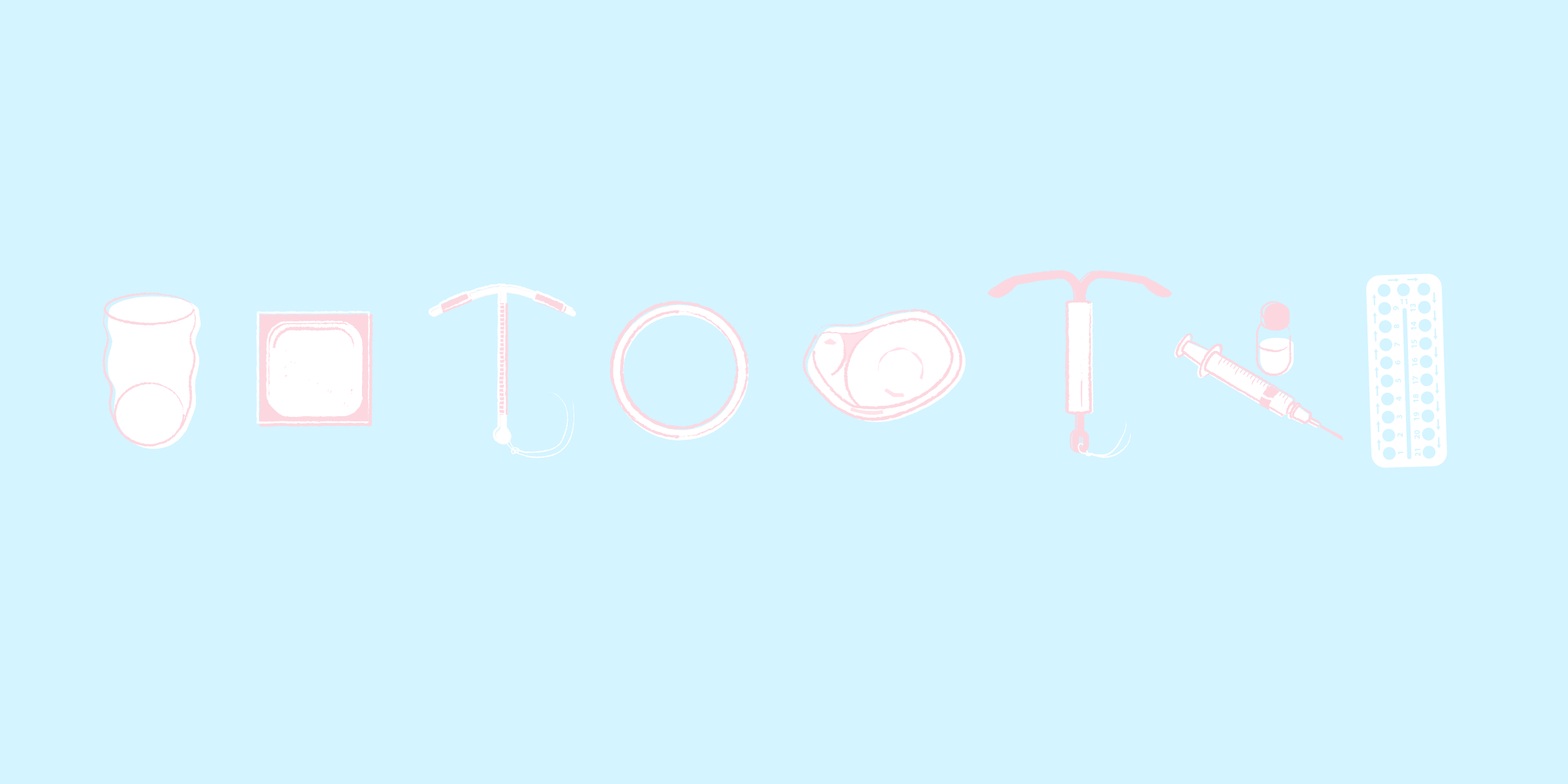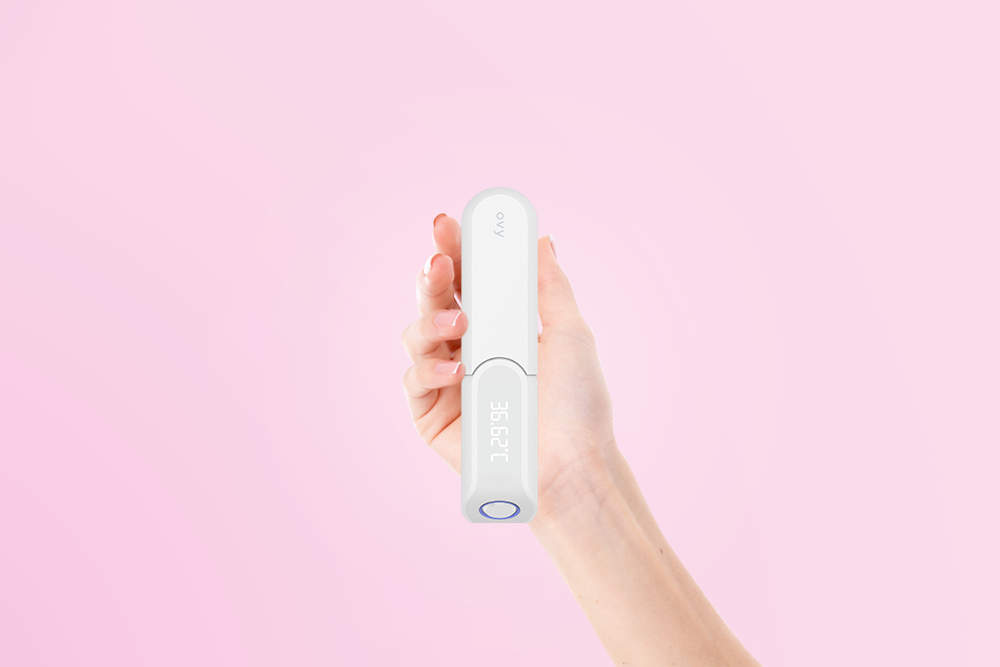Key Takeaways
- Die Schilddrüse ist im menschlichen Körper für eine Vielzahl von Funktionen verantwortlich.
- Wenn es zu einer Unterfunktion der Schilddrüse kommt, können viele Symptome auftreten. Dazu gehören unter anderem kalte Hände, Kopfschmerzen, Müdigkeit und Menstruationsbeschwerden.
- Damit kann die Schilddrüse auch die Ursache sein, wenn du an Zyklusstörungen leidest.
The female menstrual cycle is a complex interplay of hormones that affects a woman's fertility and general health*. When the cycle gets out of balance and irregularities occur, the question often arises: could my thyroid be responsible?
The thyroid gland has far-reaching effects on the entire body, including the menstrual cycle. In this blog post, we take a closer look at the link between thyroid function and cycle disorders to answer the question: could my thyroid actually be the cause of my cycle problems?
What is the thyroid gland?
The thyroid gland is a vital organ in the human body that performs a variety of important functions. These include:
Hormone production: the thyroid gland produces and releases hormones, in particular thyroxine (T4) and triiodothyronine (T3). These hormones play a crucial role in regulating the body's metabolism.
Metabolic regulation: The hormones produced by the thyroid gland influence the body's metabolism and energy consumption. A balanced metabolism is important for maintaining a healthy weight and energy regulation.
Growth and development: Thyroid hormones are also important for the normal growth and development of organs and tissues, especially during childhood and adolescence.
Regulation of the cardiovascular system: Thyroid hormones influence the cardiovascular system, including heart rate and blood pressure.
Temperature regulation: Thyroid hormones play a role in the regulation of body temperature.
Influence on the metabolism of proteins, fats and carbohydrates: The thyroid gland influences the metabolism of nutrients in the body, including proteins, fats and carbohydrates.
A malfunctioning thyroid gland can lead to various disorders, including hypothyroidism (underactive) and hyperthyroidism (overactive), each of which is associated with different symptoms and health effects.
How many people suffer from hypothyroidism?
The prevalence (incidence) of hypothyroidism can vary by region and population group. It is estimated that millions of people worldwide suffer from hypothyroidism.
Hypothyroidism is one of the most common endocrine disorders worldwide. Women* are affected more often than men*, and the prevalence increases with age. The most common cause of hypothyroidism in developed countries is autoimmune thyroiditis, particularly Hashimoto's thyroiditis. This disease causes chronic inflammation of the thyroid gland and can lead to hypothyroidism over time.
What are the symptoms of hypothyroidism?
The symptoms of an underactive thyroid (hypothyroidism) can vary and are often non-specific. People with hypothyroidism may have a combination of the following symptoms:
Tiredness and fatigue, Weight gain, Sensitivity to cold, Constipation, Dry skin and hair, Bradycardia (slowed heartbeat), Muscle pain and stiffness, Puffy face and eyelids, Concentration problems and memory problems, Menstrual irregularities.
How does the thyroid gland affect the female menstrual cycle?
The thyroid gland plays a crucial role in regulating the female reproductive system, and thyroid dysfunction can affect the female menstrual cycle.
Menstrual cycle length: The thyroid gland influences the production of hormones that are important for regulating the menstrual cycle. An underactive thyroid (hypothyroidism) can lead to longer menstrual cycles, while an overactive thyroid (hyperthyroidism) can lead to shorter cycles.
Ovulation (ovulation): Impaired thyroid function can affect ovulation, which can lead to infertility.
Endometrium: Thyroid hormones affect the lining of the uterus, which builds up during the menstrual cycle and is then shed during menstruation. Impaired thyroid function can lead to abnormal bleeding or difficulty conceiving.
Hormonal balance: The thyroid gland interacts with other hormones in the body, particularly sex hormones such as oestrogen and progesterone. An imbalance of these hormones can affect the menstrual cycle.
Obstetric complications: Untreated thyroid disease in pregnant women* can lead to complications such as premature birth, low birth weight and developmental problems in the newborn.
Not all women* with thyroid problems will necessarily have reproductive problems. Some women* may experience difficulties getting pregnant or during pregnancy, while others may have no obvious problems. It is advisable to seek medical advice if a thyroid condition is suspected, especially when it comes to reproductive health. Appropriate treatment and monitoring can help to minimize potential problems.
What should I bear in mind when trying to conceive if I have an underactive thyroid?
Well-regulated thyroid function is important for a healthy pregnancy and successful conception. If someone with an underactive thyroid wants to have children, there are some important aspects to consider:
Early medical advice: it is advisable to seek medical advice before becoming pregnant. The thyroid function can be checked, the dose of medication adjusted and it can be ensured that the TSH level is within the recommended range. Well-regulated thyroid function before conception and during pregnancy is important for the health of the mother and baby.
Regular monitoring: Regular monitoring of thyroid function is recommended during pregnancy. Hormone requirements may change and medication dosage adjustments may be necessary to ensure thyroid function remains in the optimal range.
Iodine intake: Iodine is important for normal thyroid function and the need for iodine may be slightly increased during pregnancy. It is important to ensure adequate iodine intake. In some cases, the doctor will recommend iodine supplementation.
Folic acid supplementation: Women* who wish to have children are often advised to supplement folic acid to reduce the risk of neural tube defects in the baby. It is important to ensure that folic acid intake is adequate, regardless of thyroid function.
Check thyroglobulin antibodies: In women* with autoimmune thyroiditis such as Hashimoto's thyroiditis, it may be important to check thyroglobulin antibodies. These autoantibodies can sometimes increase the risk of complications during pregnancy.
Timely adjustment of thyroid medication and careful monitoring during the fertility period and pregnancy can help minimize complications and improve the chances of a healthy pregnancy.
If you are experiencing some of the symptoms of hypothyroidism and are unsure whether you have hypothyroidism, you should make an appointment with your doctor to have your thyroid checked.
Medically Reviewed
This text was created by medical editors on the basis of specialist medical literature and current studies. Our aim is to work scientifically, identify sources and regularly check that the content is up to date.
References & Literature
- Amrani, M. (2023). Schilddrüse. In Gynäkologische Endokrinologie und Kinderwunschtherapie: Prinzipien und Praxis (pp. 421-441). Berlin, Heidelberg: Springer Berlin Heidelberg.
- Bekkering GE, Agoritsas T, Lytvyn L et al. Thyroid hormones treatment for subclinical hypothyroidism: a clinical practice guideline. BMJ 2019; 365: l2006.
- Gesellschaft für Neonatologie und pädiatrische Intensivmedizin (GNPI). Neugeborenen-Screening auf angeborene Stoffwechselstörungen, Endokrinopathien, schwere kombinierte Immundefekte (SCID) und Mukoviszidose (S2k-Leitlinie). AWMF-Registernr.: 024-012. 2019.
- Persani L, Brabant G, Dattani M et al. 2018 European Thyroid Association (ETA) Guidelines on the Diagnosis and Management of Central Hypothyroidism. European Thyroid Journal 2018; 7(5): 225-237.
- Schneider, H. J., Jacobi, N., Thyen, J., Schneider, H. J., Jacobi, N., & Thyen, J. (2020). Schilddrüsenunterfunktion: Hashimoto-Thyreoiditis–wenn unser Körper sich selbst behindert. Hormone–ihr Einfluss auf mein Leben: Wie kleine Moleküle Liebe, Gewicht, Stimmung und vieles mehr steuern, 125-132.
You might also be interested in these articles
Verhütung
Farewell cocktail of hormones! That’s what happens in your body when you stop the pill.5 Min. Lesezeit





